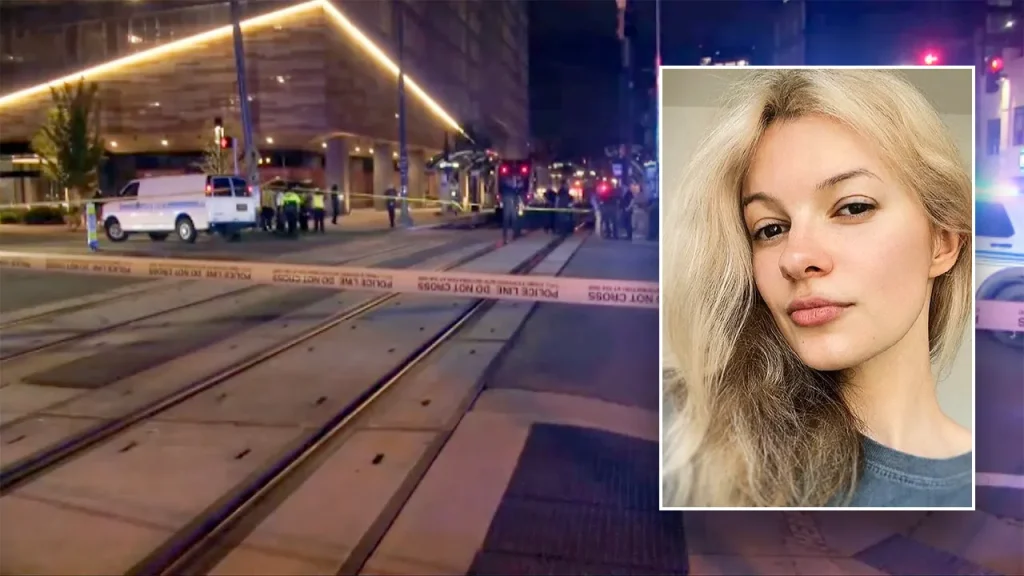Ukrainian Refugee’s American Dream Ends in Tragedy
In a heart-wrenching turn of events that has shocked the Charlotte community, 23-year-old Iryna Zarutska, who fled war-torn Ukraine seeking safety and a fresh start in America, was stabbed to death at a light rail station on Friday evening. The young woman, who had journeyed thousands of miles to escape violence in her homeland, tragically lost her life around 10:30 p.m. at the busy East/West Boulevard station in Charlotte’s South End district. By the time officers arrived at the scene, Zarutska had already succumbed to her injuries, leaving behind devastated family members who had supported her quest for a peaceful life away from conflict. The cruel irony of her death – escaping war only to fall victim to violence in what should have been her safe haven – has resonated deeply with the local community and beyond, prompting an outpouring of support for her loved ones.
In the aftermath of the tragedy, a GoFundMe campaign launched on behalf of Zarutska’s aunt Valeria has already raised over $12,000, revealing the profound impact of her story on strangers moved by her plight. “Ira had recently arrived in the United States, seeking safety from the war and hoping for a new beginning. Tragically, her life was cut short far too soon. This is an irreparable loss for her family,” reads the campaign description, using the familiar form of Iryna’s name. The fundraiser organizers expressed gratitude for any donations or shares, emphasizing how meaningful this support is for a family dealing with unimaginable grief. The community response highlights how Zarutska’s story has touched many hearts – representing as it does the universal human desire for safety and opportunity, and the devastating consequences when those hopes are violently shattered.
Police quickly apprehended 34-year-old Decarlos Brown, who was hospitalized before being charged with first-degree murder in connection with Zarutska’s death. While authorities have not yet disclosed what precipitated the attack, court records reveal Brown has an extensive criminal history dating back to 2011, including serious charges such as felony larceny, robbery with a dangerous weapon, and communicating threats – though most of these charges were eventually dropped. This aspect of the case has raised questions about the criminal justice system and whether more could have been done to prevent a person with such a history from being in a position to commit this crime. The circumstances surrounding how Brown encountered Zarutska and what led to the fatal stabbing remain unclear, adding another layer of pain for her family as they grapple with understanding the senseless violence that claimed her life.
Zarutska’s death has become a catalyst for renewed focus on public safety concerns in Charlotte, particularly regarding the city’s transit system. During a Monday council meeting following the incident, council member Dimple Ajmera called for “immediate steps that are being taken to ensure the safety of our riders and operators and to restore confidence in our system.” The killing at such a busy public transportation hub has unsettled many residents who rely on these services daily, prompting civic leaders to address growing anxieties about violent crime in public spaces. The tragic irony that Zarutska fled a war zone only to lose her life at a train station in America has underscored failures in creating truly safe environments for all residents – especially the most vulnerable newcomers to the country.
This incident occurs against the backdrop of broader concerns about violent crime in American cities, with Zarutska becoming an unintended symbol of the challenges facing urban communities nationwide. Her story represents a particularly poignant example of how violence can shatter lives and dreams – in this case, of a young woman who had already endured significant hardship in her home country before seeking refuge in the United States. For many Ukrainian Americans and refugees who have fled the Russian invasion, Zarutska’s death strikes a particularly painful chord, representing the cruel twist of fate that someone who survived war could not survive an evening commute in her adopted country. Her murder raises difficult questions about America’s promise as a safe haven for those fleeing conflict zones around the world.
As Charlotte mourns this senseless loss, Zarutska’s story reminds us of the fragility of life and the unpredictability of violence, while also highlighting the resilience of human compassion in the face of tragedy. The swift community response to support her family financially demonstrates how strangers can come together in times of crisis, crossing cultural and national boundaries to offer comfort and practical assistance. While nothing can bring back the young woman whose hopes for a peaceful future were violently extinguished, the outpouring of support ensures her memory will be honored and her family will not face their grief alone. As investigations continue and the community processes this tragedy, many are left wondering what more could be done to protect vulnerable individuals like Zarutska – those who come to America’s shores seeking nothing more than safety and the opportunity to build a life free from the threat of violence, only to have those dreams destroyed in an instant of senseless cruelty.










